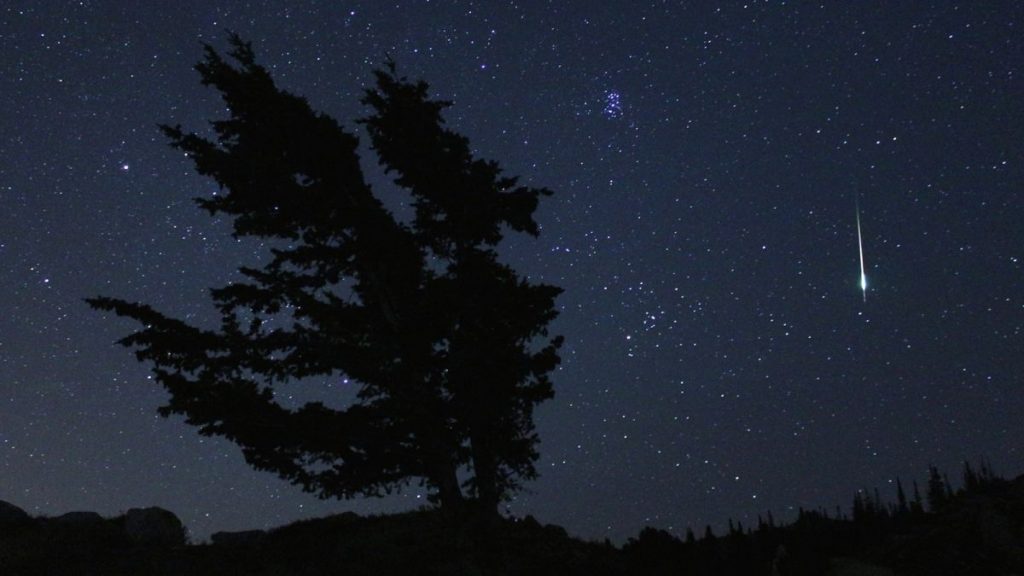
The κ-Cygnid meteor shower reaches its peak on Aug. 18. Here’s what to expect. (Image Credit: Space.com)
If you’re up for an observing challenge, the κ-Cygnid (Kappa Cygnid) meteor shower will produce a few bright shooting stars during its peak Thursday (Aug. 18).
Up to three meteors per hour will be visible, according to In-The-Sky.org (opens in new tab), and from New York City the radiant (or apparent direction of the shooting stars) will be visible all night near the celestial north pole in the constellation Draco.
The best time to spot shooting stars will be at about 2 a.m., and luckily the moon is in a quarter phase. That means moonlight will be less of a factor in looking for meteors. Unfortunately, there won’t be many shooting stars on offer, however.
Related: Meteor shower guide 2022: Dates and viewing advice

If you’re looking for a good camera for meteor showers and astrophotography, our top pick is the Nikon D850. Check out our best cameras for astrophotography for more and prepare for the tau Herculids with our guide on how to photograph a meteor shower.
Meteor showers arise when Earth moves through the densest part of a trail of gas and dust that either a comet or an asteroid left behind. Astronomers have been searching for years for the exact source of this meteor shower, but what causes the shooting stars remains under dispute, according to a 2015 paper (opens in new tab) in The Astronomical Journal.
To get your best chance of seeing shooting stars, go outside at least 20 minutes before you expect to start observing. Bring a lawn chair or a blanket to stay comfortable. Lie back and look to the top (zenith) of your local sky, and if needed, bring snacks and hydration as you might be outside a while.
Since the κ-Cygnid produces only a few shooting stars every hour, there’s no better time to learn your way around the night sky. Our August 2022 guide will help you find your way to Mars, which is shining nearby the Pleiades star cluster in Taurus. The third quarter-moon is also worth a look, especially if you have binoculars or a telescope available.
If you want more advice on how to photograph the κ-Cygnid meteor shower, check out our how to photograph meteor showers guide and if you need imaging gear, consider our best cameras for astrophotography and best lenses for astrophotography.
Follow Elizabeth Howell on Twitter @howellspace (opens in new tab). Follow us on Twitter @Spacedotcom (opens in new tab) and on Facebook (opens in new tab).





